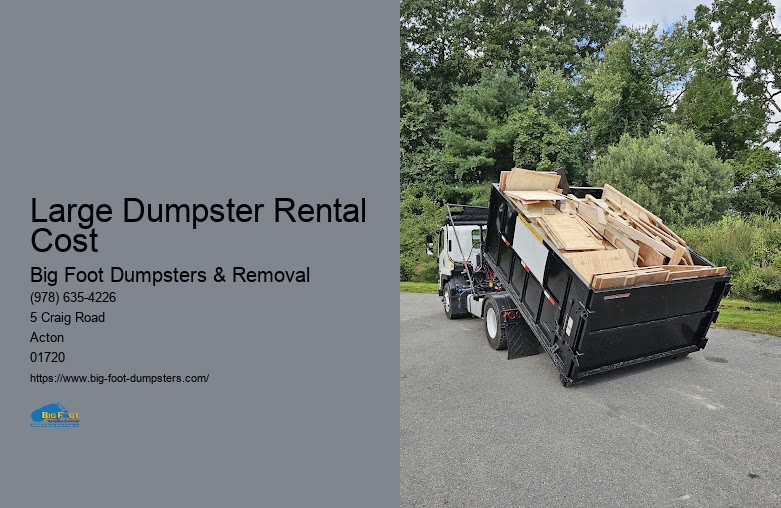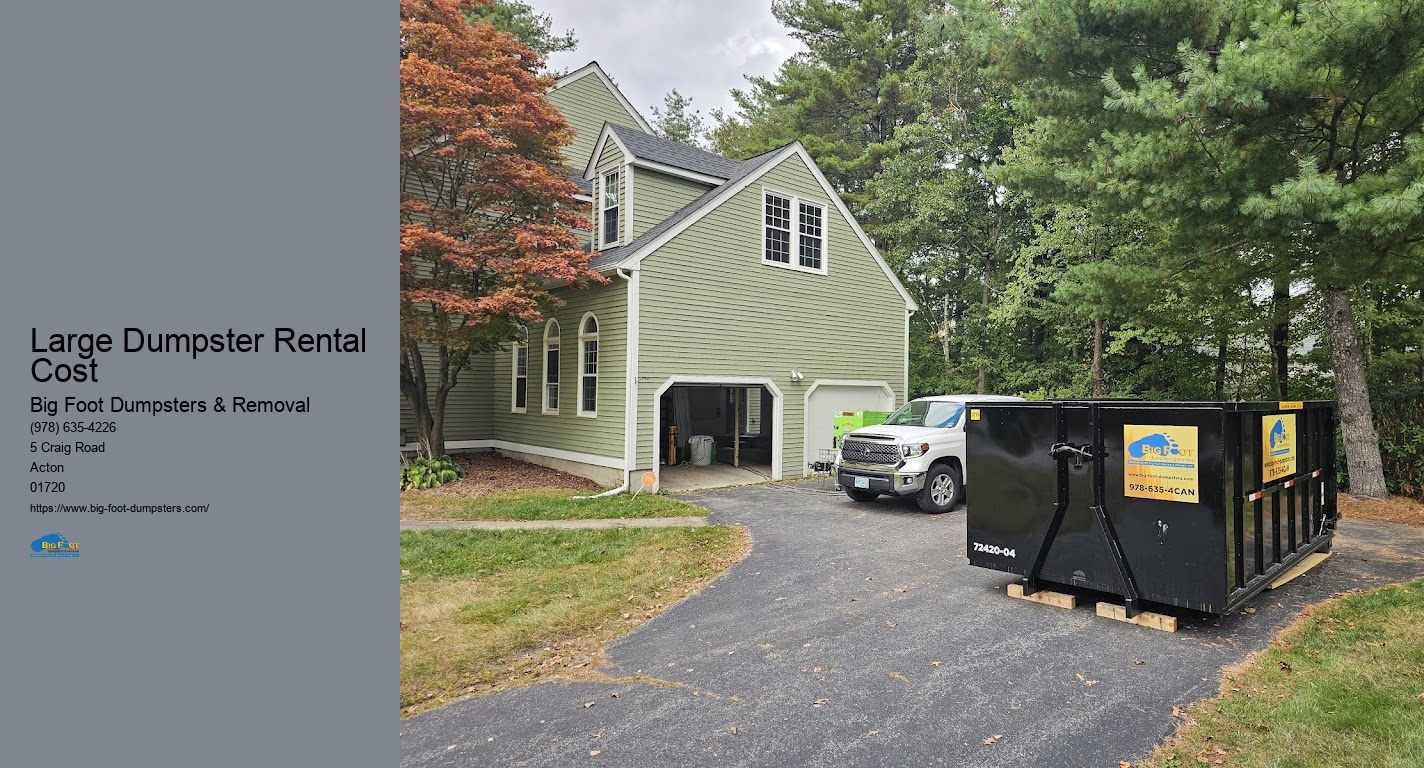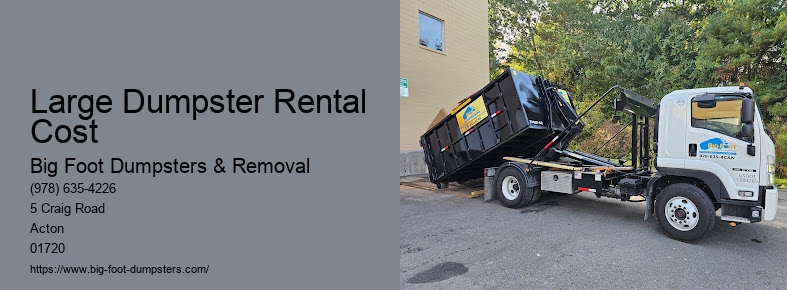

From a sustainability perspective, residential dumpsters offer a practical way to segregate recyclable materials. There are many ways to dispose of waste from your residential renovation in an environmentally friendly manner. Whether you're handling a minor household cleanup or a major renovation project, we're committed to making your dumpster rental experience as seamless as possible. Overloading a dumpster can lead to safety hazards, including the risk of debris spilling out and causing accidents. At Big Foot Dumpsters & Removal, we understand how challenging home projects can be, and renting a dumpster can significantly alleviate the burden of waste disposal. By opting for a residential dumpster, you can focus on your project without worrying about how to manage debris and other unwanted materials.
Many hazardous materials come in liquid form or are contained in containers that could leak, so it's important to secure them in sturdy, leak-proof bags or containers. Some cities or counties may require that you obtain a permit for placing a dumpster on the street or sidewalk, and securing your dumpster ensures that it complies with these regulations. Similarly, steel and aluminum can be melted down and reused for a variety of purposes. Dumpster (container)
These substances can be dangerous to the environment and must be handled separately. A dumpster that's too small can lead to frequent pickups, while a dumpster that's too large can result in you paying for more space than you actually need. Whether it's reporting damage or addressing an overload, we will work with you to find a solution that minimizes delays and keeps your project on track.
If you're unsure whether you're close to reaching the weight limit, it's always best to consult with our team at Big Foot Dumpsters & Removal. Safely disposing of hazardous materials is understanding what qualifies as hazardous waste. These issues can turn a simple waste removal process into a frustrating and unsanitary experience.
Construction projects-whether you're remodeling your kitchen, building a new deck, or clearing out your garage-often generate a large amount of debris. Recycling is one of the simplest yet most effective ways to minimize your environmental impact. Be mindful of the weight and size limitations of the dumpster, and make sure you don't exceed the maximum capacity.
This not only saves you time but also minimizes the disruption to your daily routine. For example, used motor oil and any other type of chemical that can pollute the environment should never be put in your dumpster. It's important to estimate your project's timeline as accurately as possible to avoid unnecessary extensions and additional fees. Certain materials, such as electronics or hazardous materials, may require specialized disposal methods and should not be placed in standard residential dumpsters.
This is especially important when dealing with things like old couches or wardrobes, which can be tricky to fit inside a standard-sized dumpster without breaking them down first. Metals such as copper, steel, and aluminum are commonly found in construction debris, particularly when demolishing old plumbing systems, electrical wiring, or appliances. Hazardous waste, such as paints, solvents, or cleaning chemicals, should never be placed in your residential dumpster.
However, the process of renting a dumpster can feel overwhelming if you're unfamiliar with it. When embarking on a home renovation, major cleanout, or any project that generates significant waste, selecting the right size and capacity of a residential dumpster is crucial for efficiency, cost-effectiveness, and the overall success of your project. In addition, it's a good practice to separate different types of waste before placing them in the dumpster.
It's important to pay attention to weight limits and avoid placing materials that might exceed the maximum weight capacity of the dumpster. If your project involves older materials that may contain asbestos or lead, it's essential to consult with a professional and arrange for proper disposal. Electronic waste Overloaded dumpsters can also result in additional charges, as they can lead to extra weight or debris spilling out during transport.


When it comes to home renovations, one of the essential aspects to consider is waste disposal. Renting a residential dumpster in Acton, MA, is an efficient solution for those undertaking a home renovation, large cleanout, or even a backyard makeover. It's essential to check with your local municipality to ensure that you are in compliance with any regulations. One of the first steps you can take to dispose of waste more sustainably is to separate recyclables from general waste.
When embarking on a home improvement or renovation project, one of the most important considerations is how to handle the waste generated during the process. It's important to segregate recyclables, hazardous materials, and general waste before placing them in the dumpster. Big Foot Dumpsters & Removal recommends the 20-yard dumpster for customers who need more room but want to avoid the larger costs associated with the bigger sizes.
Proper waste disposal is critical to ensuring that materials like wood, metals, and plastics are disposed of responsibly. Big Foot Dumpsters & Removal provides dumpsters equipped with secure lids, and we recommend keeping them shut at all times, except when adding new waste. The size of the dumpster you need plays a significant role in determining the rental cost.
At Big Foot Dumpsters & Removal, we are committed to helping homeowners understand how to handle hazardous waste safely. Dumpster sizes range from 10 to 20 yards, with smaller dumpsters typically costing less than larger ones. For smaller projects such as home cleanouts, garage decluttering, or small-scale renovations, a 10-yard dumpster is typically an excellent choice. Litter bins
Items like paints, oils, and cleaning products can be harmful if they are not disposed of correctly. By repurposing these materials or recycling them, you not only reduce waste but also contribute to conserving valuable resources. This not only reduces the amount of waste sent to the landfill but also contributes to sustainability and resource conservation. We ensure that your waste is disposed of responsibly, with a focus on recycling and reducing the amount of waste that ends up in landfills.

These fees can vary depending on your location, the distance from the rental company's facility, and the logistics involved in delivering the dumpster to your property. This helps ensure that the weight is distributed evenly and prevents more fragile items from being crushed. In addition, be sure to avoid overloading the dumpster. At Big Foot Dumpsters & Removal, we aim to simplify the process by providing you with a step-by-step guide to help you through your dumpster rental journey. By knowing the weight of your materials and making sure you don't exceed the dumpster's weight limit, you can avoid additional charges. Durable good
By reporting the overload promptly, we can help you avoid additional fees and ensure that the waste is removed safely and efficiently. Renting a residential dumpster for your home renovation offers many advantages.
Undertaking a home renovation project can be both exciting and overwhelming. Choosing the right size is crucial, as it can help you avoid overpaying for a dumpster that's too large or running out of space and requiring additional rentals. Renting a residential dumpster for your home project is a decision that offers numerous benefits. This weight limit depends on the size of the dumpster and the type of materials you're disposing of.
By avoiding the disposal of hazardous materials in your residential dumpster, you are helping to prevent environmental contamination. Simply load the materials into the dumpster as you work, and once the project is complete, Big Foot Dumpsters & Removal will come to pick up the dumpster. Another important factor to consider is the placement of the dumpster.
Big Foot Dumpsters & Removal offers several dumpster sizes including 10-yard, 15-yard, 20-yard, and 30-yard dumpsters.
You can dispose of construction debris, household junk, and yard waste, but hazardous materials are not allowed.